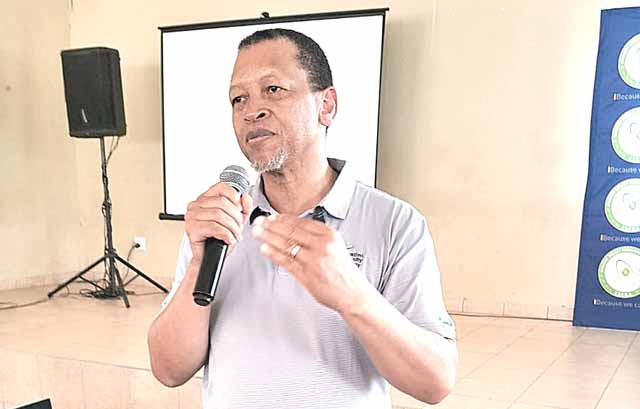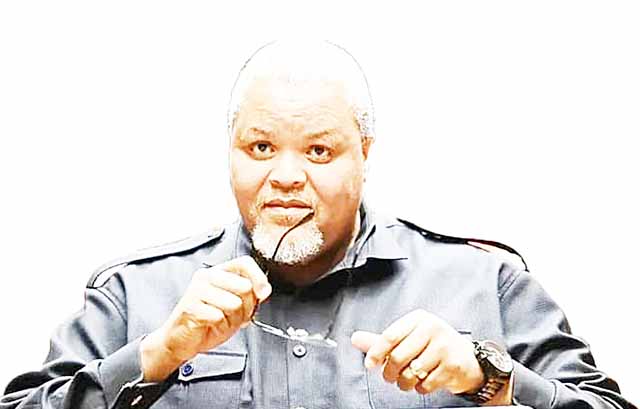By SIFISO DLAMINI | 2024-11-21

LAVUMISA residents have urged government to invest in local power generation instead of relying on neighbouring countries for electricity.
The residents said it was embarrassing that after over 50 years of independence, the country still imported about 80 per cent of its electricity.
The residents said instead of moving towards first world status as per His Majesty King Mswati III's vision, the country was moving backwards.
Government has also been advised against spending billions of Emalangeni on what some residents view as meaningless investments and channel resources towards improving power generation in the country.
This was during the ongoing public consultations on the proposed 25.51 per cent electricity tariff review held at Lavumisa Community Hall yesterday.
The public hearings are being conducted by the Eswatini Energy Regulatory Authority (ESERA).
During the question and answer session, a majority of the residents said they were concerned about the slow rate of power generation in the country.
Sikelela Dlamini noted that one of the Eswatini Electricity Company's (EEC) core mandate apart from service delivery was to generate power but at the rate in which this was happening, it was concerning.
"Why do we have to import so much electricity instead of generating our own?" he said.
Another resident who identified himself as Matsenjwa said he was disappointed that EEC continued to import about 70 per cent of electricity from South Africa and Mozambique.
"You mean to tell me that you are not as smart as your counterparts in South Africa and Mozambique to figure out how to establish your own power plant to supply the country," he said.
Aaron Vilane said Emaswati could barely afford to buy electricity at present as people had no money.
"We are supposed to be moving towards first world status as a country but we are moving backwards," he said.
He also pointed out that whenever civil servants negotiated for a cost of living adjustment, they only received three per cent and said the over 25 per cent requested by EEC was unreasonable.
identified
Another resident who identified himself as Dlamini said they did not expect an increase because they had no means to afford the electricity.
"The situation is worst for us living in rural areas because we have no jobs. If you so desperately need to increase the tariff, do it for those living in Mbabane not us," said Dlamini.
Mantantana Dlamini commended the establishment of the Qomintaba solar power station which they thought would be a life-saver but did little to increase the local power generation.
"Why are you doing this to us, have you forgotten that we once lived without electricity before you came? Nisibukelelani singemaSwati," he decried. Njabulo Mhlanga said EEC was making Emaswati pay for government’s failure to settle their outstanding debts.
He also mentioned that it was unjustifiable that over 50 years since the country got independence EEC was still importing 80 per cent of electricity.
"The sad thing is that government can afford to spend over E7 billion on meaningless projects.
We need to have a company that is 100 per cent owned by government to cut down on the cost of electricity because this is not fair for Emaswati," he said.
EEC General Manager Operations Vusi Gama said currently the country only had 70MWh generating capacity.
He said in the past, it was cheaper to import electricity from South Africa compared to establishing a power plant locally. He said the issue started when SA began load shedding, which saw an increase in tariffs and made electricity more expensive to import. He said it was the same case with Mozambique.
He assured that the new upcoming projects would assist in increasing the power generated locally.
Do not compare us with South Africans
LAVUMISA residents have urged government to review salaries and elderly grants first before increasing the cost of electricity.
The residents did not take kindly to being compared to South Africans who earned higher salaries and grants.
They also raised a concern that EEC management drove all the way from Mbabane in their fancy cars to rubber-stamp the proposed 25.51 per cent tariff hike.
During his presentation, Gama mentioned that the cost of buying 200 units in Eswatini was E419.34, which was significantly lower that the over E800 cost in South Africa.
He said as much as the cost of electricity had significantly increased over the past few years, it was still relatively cheaper in Eswatini compared to neighbouring countries.
This did not sit well with some residents who said it was unfair to compare the cost of living in the two countries because the circumstances were different. One of the residents who identified himself as Matsenjwa questioned how the elderly were expected to afford electricity cost while they were receiving E500 per month.
"Do not compare us with South Africa, the elderly there are paid E2 000 in elderly grants a month meaning they can afford to buy electricity," he said.
He also mentioned that most Emaswati worked in the textile industry and earned E1 700, from which they were expected to pay rent and support their families.
He said it was unfair to increase the price of electricity by over 25 per cent. Sindi Gina said the situation was worse for them at Lavumisa because there were no jobs and not a single factory shell and the little they were paid was not enough to afford electricity.
Do not politicise the meetings - ESERA CEO
ESWATINI Energy Regulatory Authority (ESERA) Chief Executive Officer Sikhumbuzo Tsabedze urged Lavumisa residents to desist from politicising the meeting.
The residents did not take kindly to the CEO’s remarks and said he was depriving them of their right to freedom of speech.
At the beginning of the meeting, Tsabedze urged the residents to observe the rules of engagement as they posed their questions and refrain from politicising the meeting.
"Let us stick to the agenda and refrain from talking about issues that have nothing to do with the business at hand," said Tsabedze.
The residents ignored the advice and kept insisting that the EEC should clarify if it was true that there were some institutions that did not pay for electricity.
One of the residents who demanded responses was Boy Matse who repeatedly posed the question despite numerous warnings.
The residents also asked why Emaswati were forced to cater for government's failure to settle their debt with EEC by imposing a tariff increase. This forced Tsabedze to intervene and instruct Matse to shut up.
“Let us respect each other and stick to the agenda, we are all adults here. “I can assure you that all areas and institutions are metered and pay for the electricity they use," he said.
He also clarified that the government debt had nothing to do with the proposed tariff increase and pleaded with the residents not to get carried away but stick to the issue at hand. Another resident who identified herself as LaThwala said it was concerning that the MD was making it seem as if they no longer had freedom of speech in the country.
She insisted that they should be allowed to ask the questions because they were the ones who were expected to pay for the electricity.
She also complained about poor service delivery from the company's staff as they were meant to wait for days before power was restored when there were electrical faults.
EEC General Manager Operations Vusi Gama and Managing Director, Ernest Mkhonta also insisted that everyone in the country paid for electricity. Mkhonta further clarified that there was no institution that was exempted from paying for electricity.
share story
Post Your Comments Below
As the countdown to Black Friday on November 28 begins, shoppers around the globe are gearing up ...
HIP-HOP artist Sisekelo Sean collaborated with German producer Flow.fx and singer Milaa and rappe...

IN a fiery response on Facebook, Bishop Mpendulo Nkambule has addressed recent allegations and pr...

IN a dramatic twist of events, government retracted a statement by UNESWA Acting Registrar Richar...
All material © Swazi Observer. Material may not be published or reproduced in any form without prior written permission.
Design by Real Image Internet